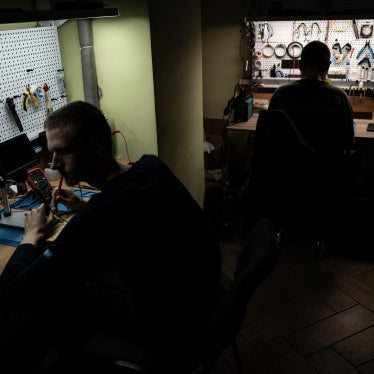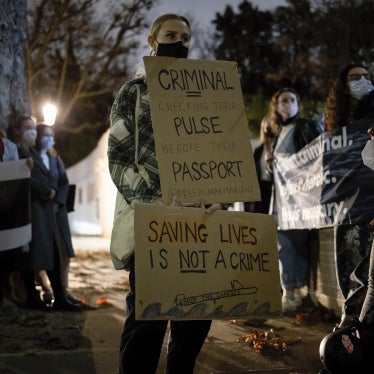Today, one year after the mass Gezi Park protests erupted in Turkey, organizers of the original campaign against the urban redevelopment of the park in central Istanbul will stand trial on criminal charges. While they are among thousands who have faced criminal proceedings for their part in protests throughout the country, the police who violently dispersed them have largely escaped justice.
The images that reverberated around the world showed a police assault on mainly peaceful protests in which crowds repeatedly floundered in a sea of teargas and people were swept off the streets by water cannons. Police unlawfully fired teargas canisters directly at the crowd, turning them into lethal weapons which killed two people, blinded 11, and inflicted serious head injuries on scores more. Three other demonstrators and a police officer died during the protests.
Five individuals among the 26 on trial today played a central role in coordinating “Taksim Solidarity,” the platform of 128 nongovernmental organizations involved in the Gezi Park campaign and occupation of the park. The five face charges of setting up a criminal organization, inciting and participating in unlawful demonstrations, and refusing orders to disperse. These charges could lead to a prison sentence of up to 13 years.
According to the Human Rights Foundation of Turkey and the Human Rights Association in a FIDH report, 5,653 demonstrators have been put on trial, in 97 separate trials, for joining unauthorized protests, resisting the police, damaging public property, and even for terrorism offenses. In some cases the courts have acquitted defendants at the first hearing, but other trials are limping along. The vast majority of defendants are at liberty, though some charged with terrorism offenses spent up to ten months in pre-trial detention. One trial in Istanbul against 255 people began last month but has been postponed until November.
In contrast, just a handful of police have faced any kind of criminal prosecution for excessive use of force and their role in the deaths of three protesters. The police officer on trial for fatally shooting demonstrator Ethem Sarısülük at close range is still on duty. He is charged with “causing death through exceeding limits of legitimate defense” – in other words, starting from the premise that an officer who fires bullets into a crowd of unarmed demonstrators is acting lawfully in self-defence. The flawed trial is proceeding slowly.
The evidence against the Taksim Solidarity five is made up of tweets from its account, statements shared on Facebook, and repeated calls by Taksim Solidarity to participate in unauthorized demonstrations. The five include Ali Çerkesoğlu, secretary general of the Istanbul Medical Chamber, and Mücella Yapıcı, secretary general of the Istanbul Architects’ Chamber.
If the prosecutors trying the case today care about Turkey’s obligation to uphold the rights to nonviolent assembly, association, and free speech, they should drop all charges against the Taksim Solidarity activists. Human rights groups will be following the case with that expectation.









